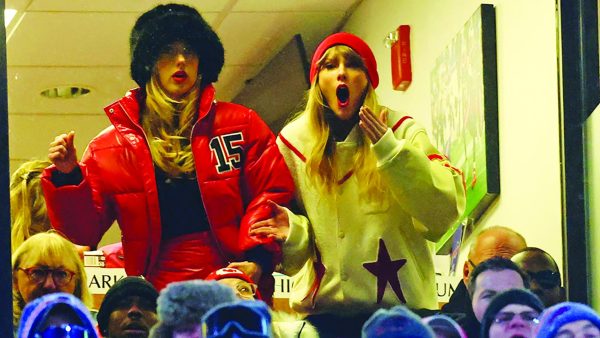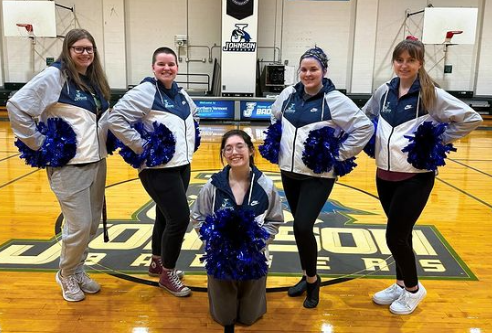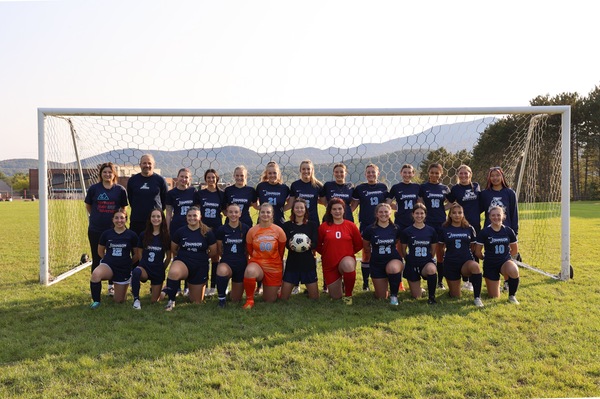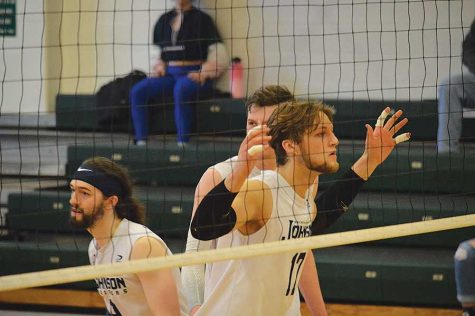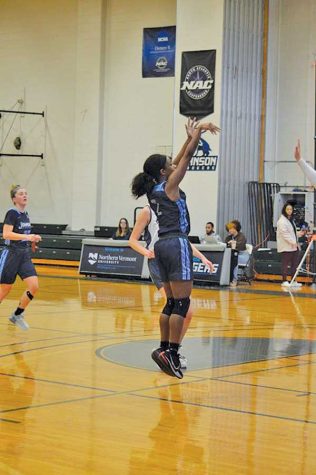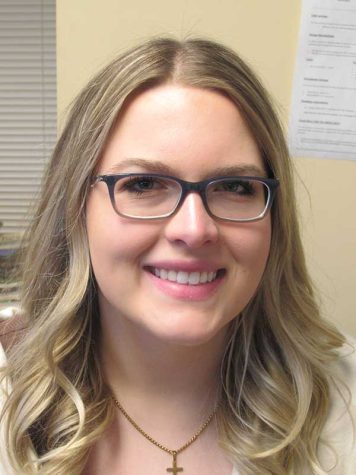Lyndon cross country runner shares her story of self-discovery, makes cover of NCAA magazine
Editor’s Note: Emma is an Electronic Journalism Arts student at Lyndon State College. This article is part of a collaboration with Basement Medicine to better represent our unified community.
Sierra Hargrave has run away from a dark past filled with childhood abuse, which turned to substance abuse, depression and self-harm. But through that journey, Hargrave found lighter days where she truly found “Sierra.” Those days are now surrounded with love, compassion and a love for cross country running.
Hargrave, a senior at Lyndon State College and captain of the women’s cross-country team, was recently featured on the cover of NCAA’s Championship Fall 2017 magazine. Within the article, she shared her story with substance abuse and depression, finding Lyndon State, and how people like Chris Ummer, the school’s head athletic director, and Pat Shine, a psychology and human services professor, helped her become the person she is today.
“I have always told Chris that I wanted to make a difference,” says Hargrave, who is from St. Johnsbury. “I left behind a whole town to better myself, but I have never forgot anyone in that town, or my past, who were continuing to struggle.”
Last year, Ummer reached out to The Caledonian-Record, the local newspaper, to share Hargrave’s story. They ended up writing a small article. Ummer took a chance and reached out to the NCAA Championship magazine as well. Hargrave remembers Ummer saying that he just want to see where it could go telling her that her story was important. The magazine expressed interest and she was interviewed by Brian Burnsed. Next thing she knew she was told she was going to be on the cover.
“There were a lot of emotions happening. I instantly went to a computer and made an outline of my life.” Hargrave said she continued to think about why there would be an interest in her life. “I continued to think, what is so special about my story? I guess maybe because I see it differently than others, I thought that other people should be getting their stories out.” Hargrave says she didn’t want to bore people and didn’t know her story was worthy enough to share. It was a gift that left her feeling vulnerable.
Hargrave says she’s had some practice when it comes to talking about her journey. “I have learned over the years that it is the conversations that we do not talk about that shuts down our communities.” She says she likes to talk about things and make connections with people, whether it’s sharing bits about her life, or talking about other things.
Hargrave says she was nervous when she first met with Burnsed, but explained that he made her comfortable but for her the timing was off because she was in a better place. “It does not feel right to talk about an emotional situation, to truly have the person across from you understand your story, when the setting wasn’t sad.”
She says she isn’t afraid of telling her story but felt like she was on a stage that day, and all the lights were on her. Hargrave says her feelings have changed about her story over the years which made telling it now harder. “I am not sad about my story, and it was hard to tell my story and get those emotions across when I had already gotten ‘past’ my story and learned from it.” But Hargrave says it was fun to talk about her life in great detail. It’s something she was never able to do before and she felt honored to talk to Burnsed, who chatted with her for 3 hours. “It was a good counseling session. I made a lot of connections and learned a lot about myself.”
Hargrave says by sharing her story she hopes people will see that there are reasons behind every person’s actions. “That people just do not behave in a harmful way because they want to hurt others.” She hopes people will learn that we all need support and to not judge a book by its cover. She wants others to know that we all have struggles and when we pull away from others we cannot get the help we need. “People need help, support, guidance and compassion instead of people judging them on the surface and taking away what they need the most, connection and community.”
She goes on to say that it is a reminder that we all yearn for love and support, to be understood is what we all need and when people can’t get that from other people, they find it in other ways. “People who struggle with addiction have the substance in common, the lack of community in common, so they create their own community.” She also says that when we sit back and judge others for their choices, instead of helping make a change, we are all at fault. She hopes people can learn to be more open-minded and to see that people with substance abuse are people too. “Help support them. Help them feel like a human again.” She wants people to know how one person represents their struggles isn’t how everyone else shows their problems.
People like Ummer and Shine demonstrated that support to Hargrave. She talks about Ummer being the only man she’s ever felt safe around. “A kind, gentle, genuine soul. He gave me attention. Something that I never had or knew how to have.” She says Ummer provided her with a positive relationship, something she’d never had in her life. “He gave me something worth working for. Taught me how to be good at something and how to work toward something.” She says Ummer guided her, but always left her in control.
Shine, one of her professors, is someone Hargrave says she strives to be like. Shine introduced Hargrave to new ways of thinking, learning, and doing. “She is a huge reason why I am who I am today.” She describes Shine as the perfect balance of gentle and stern.
Hargrave hopes people will learn to stop stereotyping. When people find out about her story, they are taken back because their stereotypes do not fit. “I do not ‘look’ like a gay woman. I do not ‘look’ like I struggled with substances. I do not ‘behave in a way’ that says I’m depressed and I need a hug. I do not ‘look’ like I was abused physically, sexually, emotionally.” She hopes people will learn, for themselves and others, to not listen to everything they come across. “I do not ‘look’ like I struggle because I am always smiling.”
She says people tend to shut out the possibility of there being more than one side to a story, and because of this, we fail to see people as they are: just people. She believes that if we were more open to listening and sharing stories, then our communities would flourish and become better places for everyone. “If we can see past what is right in front of us, or care to do so, our conversations would just be more beautiful and powerful.”
She says cross country changed her life physically and mentally. She had been living with an eating disorder since the age of 5 and says through the sport learned how to live a healthier life. “Cross country though, and my love for running and my team, made it so I could see a life without an eating disorder.” She learned that eating had an affect on her performance as a runner and during practice and meets. “In order to be the best that I can be, I actually had to eat.” Cross country allowed Hargrave to reconnect with herself in ways she hadn’t expected. “Cross country truly allowed me to connect with not only my body, but my mind and nature.”
As a result of self-harm from when she was younger, Hargrave has physical scars on her body. Having to run in certain clothes, and allowing people to see those scars, was at first intimidating, but after a while it felt empowering. She says before it was hard for her to look at her scars, she hated them. But because cross country became important, the scars and the eating disorder took a back seat. “I wanted to take care of it instead of hurting it all those years. Cross country taught me about the importance of self-care.” Every run is like a therapy moment for her and it’s taught her mental toughness and how to set realistic goals. “If I work hard and only take three seconds off my time, that’s three more seconds and I learned about myself the entire time.”
Hargrave is set to graduate in December and she has mixed feelings as she gets closer. She says it feels too soon, that she just found herself here. “I just want to do more with this community.” She says she can’t see the finish line quite yet, so she stays in the moment, but she is excited to get out of these walls and to meet more people and learn more about life.




